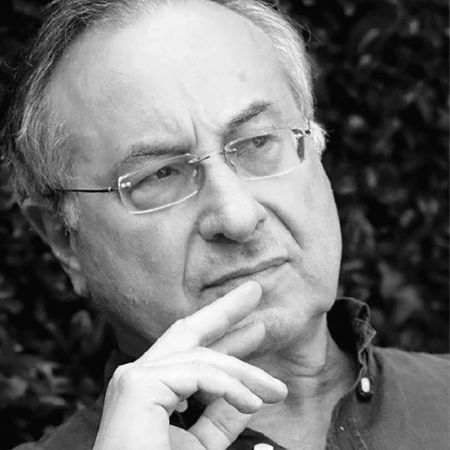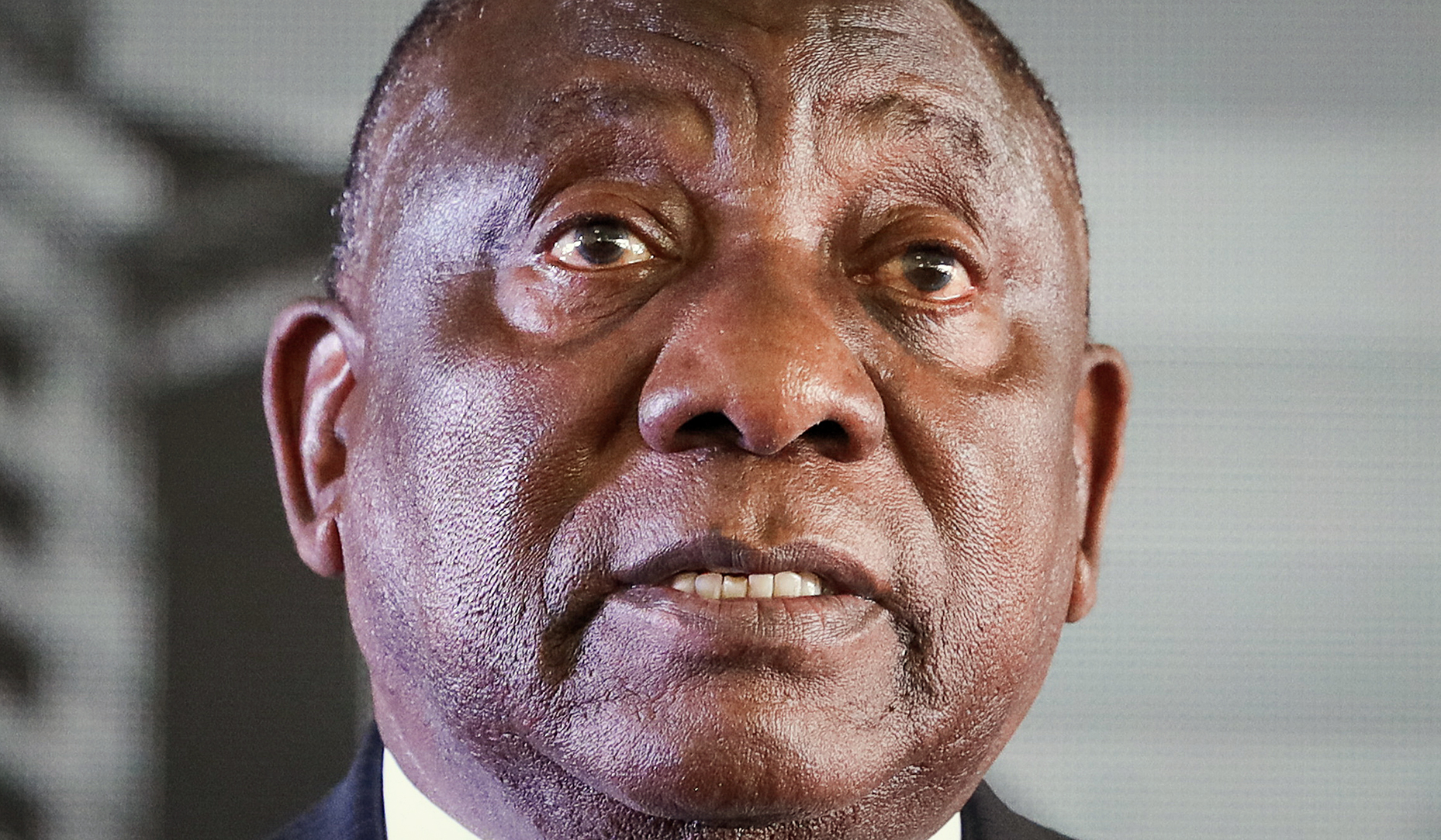When President Cyril Ramaphosa left for Brazil last week, he could not have known the range of problems he would face on his return.
Trade talks with the US appeared to be on track, and the Government of National Unity (GNU) had just weathered the storm over the firing of DA deputy trade and industry minister Andrew Whitfield.
But this week, Ramaphosa returned to a presidency symbolised by his presidential plane, which is plagued by airworthiness issues, yet is one of the few South African Air Force aircraft that still flies at all.
He came home to three crises that won’t wait, and that have even ANC supporters demanding decisive leadership.
The most immediate crisis is the scandal at the top level in the police force, which set the KwaZulu-Natal police commissioner at war with the police minister. The second is the punitive new tariffs from US President Donald Trump. The third crisis is yet another threat to the passage of the 2025/26 national Budget.
Read more: Trump’s 30% tariff on SA based on inaccurate trade data — Ramaphosa
DA’s Budget challenge
The new Budget crisis arose after Parliament’s senior legal adviser, advocate Frank Jenkins, issued a legal opinion that the national Budget cannot be passed until each departmental budget has been approved.
After reading the legal opinion, the DA leader, Agriculture Minister John Steenhuisen, said the DA would still reject the budgets of Human Settlements Minister Thembi Simelane for her alleged role in VBS looting, and of Higher Education Minister Nobuhle Nkabane for misleading Parliament.
“If the ANC wants our support for those departmental budgets, they must replace the incumbent ministers with alternatives that meet the very standard the President has set for himself through Whitfield’s axing,” said Steenhuisen.
This means the ANC must find the votes without the DA if it continues to play hardball, or the full Budget cannot be approved. The ANC will need to scrounge for votes from the minor parties as it did for Budget 2.0.
MPs in both parties indicated this week that the GNU was still likely to survive, largely because both parties are well aware that the GNU is popular and neither party wants to be blamed for its demise.
Asked what this meant for the survival of the GNU, Steenhuisen said, “It’s the same as it has been.”
Underlying Steenhuisen’s hard line was his frustration that a year into the GNU, there is still no mechanism for resolving disputes. He said the clearing house set up under Deputy President Paul Mashatile to resolve disputes still had no terms of reference.
The original GNU agreement provided that disputes be resolved by consensus, and where there is no agreement, by a 60% vote. That has not worked either.
“I’m unhappy about [Whitfield’s] firing, but there is nowhere for me to go to resolve the issue,” said Steenhuisen.
Policing crisis
Even more urgent than the Budget issue, which faces a first vote on 15 July, with the main vote scheduled for 23 July, Ramaphosa has to deal with the police leadership crisis, which ANC Secretary-General Fikile Mbalula said “borders on lawlessness, projecting us as a banana republic”.
At a bombshell media conference on Sunday, KZN Police Commissioner Lieutenant General Nhlanhla Mkhwanazi accused Police Minister Senzo Mchunu of disbanding the Political Killings Task Team because it was succeeding, of having links to crime figures and lying to Parliament to conceal one of these relationships.
Mchunu was widely regarded as a no-nonsense minister trying to fix the police. South Africans are caught between the possibility that they were wrong about him, or that he is the victim of yet another elaborate smear aimed at influencing the race for the next President and stopping the host of prosecutions of police officials now under way.
Read more: ‘No associate, just a comrade’ — Mchunu denies Mkhwanazi’s claim of ties to organised crime accused
Supporters of both the ANC and the DA have called for a more decisive response than yet another commission of inquiry or investigation.
Ramaphosa has promised decisive action, but his past responses to disputes in his party and allegations of wrongdoing have rarely been decisive or quick. It’s hard to see what tools he has in his playbook to resolve this dispute in a way that wins public approval outside his party’s leadership.
But the political calendar gives him fewer options to stall. Campaigning for the ANC presidential succession is already under way. Ramaphosa’s actions in the coming days and weeks will have a political impact in KwaZulu-Natal, where the ANC’s decline must be reversed for the party to have any chance of recovery.
The Zille threat
The ANC’s next high-risk province is Gauteng, where the main cities are plagued by poor service delivery and decay. Adding to the tension is the expected Johannesburg mayoral candidacy of the DA federal chairperson, Helen Zille, in 2026.
ANC leaders say publicly that their poor showing in the 2024 elections was a one-off, and they will recover next time, but they are well aware that Zille is a formidable opponent.
If she wins and produces the same progress she achieved as mayor of Cape Town, this could provide the DA with a breakthrough in getting black votes in Gauteng and elsewhere in national elections in 2029.
Voted world mayor of the year in 2008 by City Mayors, an international urban affairs think tank, Zille has a track record she can point to. She took office in 2006 with 42% support and the ANC as a coalition partner, survived multiple attempts to derail her, and left a stable DA majority in Cape Town and in the Western Cape, where she was premier for 10 years.
Zille’s unique brand would play to her strengths in the most important city in Africa, where success could change South Africa’s economy and its politics.
The DA could expand its black support in Johannesburg because voters of all races are desperate for competent local government after years of declining service delivery.
After several years in the GNU, the DA could argue that the claim of opponents that it wants to bring back apartheid is false. And many black voters may find it easier to give a white-led party a try at local rather than national level after three decades of loyalty to the ANC.
Read more: Helen Zille eyes Joburg mayorship after DA’s top picks decline post
No doubt Zille’s campaign will highlight her record in turning Cape Town into the only major South African town that is well run, grows, attracts investment and where property values keep rising.
She would have to raise the DA’s 26.1% share of the vote that it garnered in Joburg in the 2021 municipal elections for it to emerge as the largest party in the city. This would mean beating the ANC, which came first with 33.6% in 2021. That would be a significant climb, but not insurmountable in the current political climate.
If the DA falls far short of 50%, it will have tense negotiations with small parties, where past quarrels with the DA or Zille personally will have to be managed.
Everything will depend on the final numbers, but at this stage it seems that the 16.05% that ActionSA garnered in Joburg in 2021 makes it the most important coalition player. The DA’s more obvious allies — the Inkatha Freedom Party, Freedom Front Plus and the African Christian Democratic Party — together amount to only 5% or 6%, and repairing frayed ties with the Patriotic Alliance would add only about another 3%.
Zille has already tamped down expectations by saying the task needs at least five years, and if she wins, she will start with basic services that are vital but not sexy — like water, electricity, sanitation and roads.
She will have to prove to voters that she can do better than the DA did previously in Johannesburg and Tshwane when it led coalitions. The coalitions were unstable, and Johannesburg DA mayor Herman Mashaba left the DA acrimoniously and formed ActionSA. However, Zille’s name is a big brand.
She has noted that Johannesburg has an infrastructure backlog of R200-billion, an annual budget of R86-billion, and that the city’s workforce had grown by 86% since 2010.
She said she would initially focus on stabilising Joburg’s finances and restoring service delivery, and that appointing the correct people to key roles would be fundamental.
If she gets that right, and markets her successes well, the DA will be ideally placed for the 2029 national elections. DM





 President Cyril Ramaphosa came home to three crises that won’t wait, and that have even ANC supporters demanding decisive leadership. (Photo: Luba Lesolle / Gallo Images)
President Cyril Ramaphosa came home to three crises that won’t wait, and that have even ANC supporters demanding decisive leadership. (Photo: Luba Lesolle / Gallo Images)